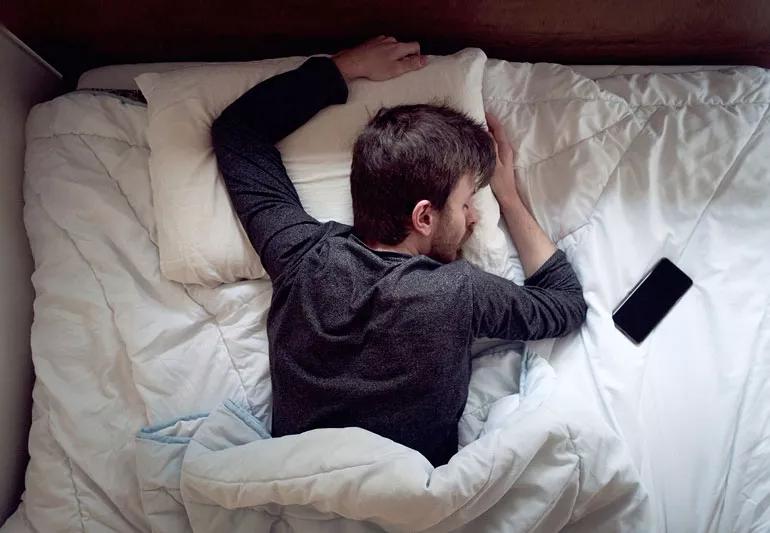The short answer from a sleep psychologist

Image content: This image is available to view online.
View image online (https://assets.clevelandclinic.org/transform/0d0ac1de-7794-4f89-af43-67446d11a5f1/badDreamsCOVID-1213590814-770x533-1_jpg)
man restlessly sleeping in bed
A: There definitely is a connection between anxiety and disturbing dreams. We saw this after 9/11 as well — people were having an increase in vivid, disturbing dreams or nightmares.
Advertisement
Cleveland Clinic is a non-profit academic medical center. Advertising on our site helps support our mission. We do not endorse non-Cleveland Clinic products or services. Policy
We actually still don’t know a lot about why we dream. But one of the theories behind dreaming is that you’re sort of processing things from the day. It’s your brain trying to file away information. It doesn’t always make sense — it’s pieces and parts of things. But when we’re inundated with things that are stressful, that tends to come out in our dreams.
It could also be that our sleep patterns are causing us to have more awareness that we’re having these dreams. We remember our dreams more when we wake out of rapid eye movement (REM) sleep. We have multiple REM periods during the night, but they tend to occur more in the later morning period. If we’re spending more time in bed these days and getting more REM sleep, that could be a factor.
There are a few things you can to do try to decrease how often you’re having these dreams. One would be trying to avoid watching the news before bedtime and instead doing things that are more relaxing, and unplugging before bedtime so that’s not what you go into the night with.
— Sleep psychologist Michelle Drerup, PsyD
Advertisement

Sign up for our Health Essentials emails for expert guidance on nutrition, fitness, sleep, skin care and more.
Learn more about our editorial process.
Advertisement
Experts are still trying to unravel this mystery
Understanding one of sleep's big mysteries
A sleep expert weighs in
The short answer: It’s complicated, but the basic care precautions still prevail, like washing your hands and isolating if you’re sick
Identify your triggers, set ground rules for your break and start practicing mindfulness
They can feel like a typical headache or a migraine headache, but the pain can last for weeks to months
Any large social gathering — from a family birthday party to an indoor music concert — has the potential to spread serious infection
It’s important to connect with a healthcare provider, get quality sleep and balance your activities with your energy levels
Type 2 diabetes isn’t inevitable with these dietary changes
Applying a hot or cold compress can help with pain
Pump up your iron intake with foods like tuna, tofu and turkey